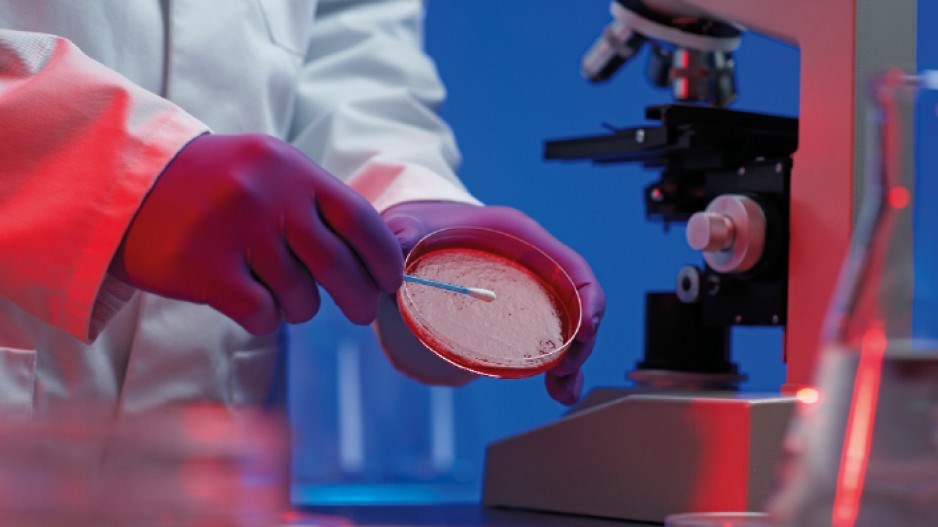Imagine if physicists who discovered a new subatomic particle – the Higgs boson, for example – could patent it and then prevent other scientists from conducting experiments that would recreate the particle in a particle accelerator.
How can you patent something that you discovered occurring in nature?
That's a question the US Supreme Court has been asked to resolve in a thorny gene patent case that could have wide-ranging implications for genetics-based biotechs, like Burnaby's Xenon Pharmaceuticals Inc., and for research in personalized medicine.
The case has the potential to open a "Pandora's box" for biotechnology and personalized medicine research, said Brad Popovich, Genome BC's chief scientific officer.
"Is it theoretically possible a discovery could be prevented from being institutionalized?" he said. "The answer is yes."
He hopes, however, that the court will come to a reasonable compromise on the question of allowing scientists to protect their discoveries without squelching other important research.
The recent court heard arguments against patents held by Myriad Genetics Inc. (NYSE:MYGN) on two genes – BRCA1 and BRCA2 – that, when mutated, can increase a woman's risk of developing breast and ovarian cancer.
The Association for Molecular Pathology argues that no private company should be allowed to patent a human gene, especially since much of the information being used is based, at least in part, on the publicly funded Human Genome Project – the largest international scientific collaboration ever undertaken.
Because it holds patents on the two genes, Myriad is the only company in the U.S. allowed to conduct diagnostic tests to screen women for genetic predispositions to breast or ovarian cancer.
A woman who gets a Myriad DNA test confirming she has genes that predispose her to cancer can't get a second opinion, because no one else is allowed to do the test. The wider implication of gene patents is that they could put serious roadblocks in the way of the genetics-based research that Xenon does.
Xenon is in stage 2 clinical trials with a new pain drug that based on a rare gene mutation that makes people immune to pain.
A protein from SCN9A – the gene that, when mutated, causes congenital insensitivity to pain – could be used to treat another rare disorder that causes spontaneous pain, as well as other pain conditions.
Xenon holds a patent on the protein – not to prevent others from using it, but to protect its own research, said Xenon CEO Simon Pimstone.
But what if some other researcher who held a patent on the gene itself either demanded royalties payment or refused to let a competitor use it for research?
"If someone were to do that, clearly it makes our job much more difficult," Pimstone said. "This is where patents around genes can impact drug development companies like ours."
Popovich recognizes the need for some kind of patent protection for scientists doing genetics-based research. Without it, they might not be able to raise the capital – often in hundreds of millions of dollars – to conduct clinical trials, if their discoveries are not protected.
"Xenon has been able to raise significant amounts of capital, and I can assure you that, in large part, their success in doing that has been hinged on the rights they have in their patent," Popovich said.
"We do need to find ways to make sure that industries [receive incentives] to innovate, and if you take away that incentive, we as a society will run the risk of not having the benefits of innovation."
But some scientists argue that there are ways to protect discoveries without placing a patent on an entire gene.
Said Pimstone: "If there is a ruling that no one can patent genes, that may not be a bad thing because it's a level playing field."




